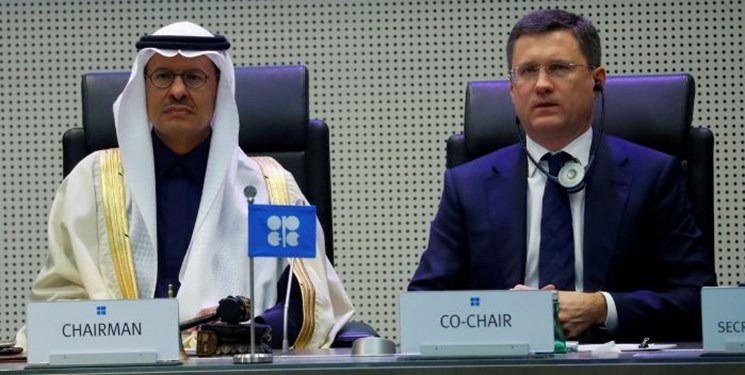Saudi Arabia, Russia and other oil-exporting countries reached a virtual agreement (through video conference) at a recent meeting of OPEC and non-OPEC oil ministers, led by Russia to reduce oil production significantly to bridge the gap between the supply and prices reaching their lowest level. Under the terms of the agreement, OPEC and allies, led by Russia, agreed to reduce their oil production by 10 million barrels per day in May and June. Saudi Arabia will cut output by 3.3 million barrels per day and Russia by 2 million bpd. The agreement will take effect on May 1. After two months, oil production will fall to 8 million bpd by December 2020, and then to 6 million bpd from January 2021.
In the agreement reached between the OPEC leaders, several points should be noted; first, Russia and Saudi Arabia will play a key role in regulating the oil market. The agreement also revived the role of the United States, which was being forgotten as a result of falling oil prices and the lack of economic efficiency in shale oil extraction, and the United States has effectively taken an influential role in the global oil market.
In terms of reducing this volume of oil production, it should be said that in practice, this volume is equivalent to the amount that is currently being added to the global market in addition to output consumption, and by eliminating this amount of surplus production compared to the global market need, oil prices will gradually rise. The price of oil will also go up to the point where the United States will be encouraged to produce shale oil again, creating a new equation for oil production among the most important countries in the market.
On the other hand, the division of oil production was one of the issues that should be considered whether all producing countries should bear a share of this reduction of 10 million barrels, or the countries that have the largest volume of the production are only included.
OPEC and OPEC Plus agreements have apparently been reached on the division of this volume, with the exception of a few countries, including Iran, Venezuela and Libya. In fact, entering into such an agreement is a kind of support for President Donald Trump to get rid of the range of crises he is facing now. First, there is the issue of the corona crisis, which is worsening day by day in the United States.
In many ways, the corona crisis has now affected the United States and Trump’s policies, and he is facing issues such as providing various budgets to run jobs, helping the unemployed, containing the increasing number of unemployed, or the impact of this situation on the upcoming US election. Another issue concerns US companies that have invested heavily in shale oil extraction and export. Apparently, these companies put a lot of pressure on Trump, and if these conditions continued, they could affect the fate of Donald Trump and the upcoming elections.
Taking into account this whole series of issues, Trump stepped in and in contacts with Saudi Crown Prince Mohammed bin Salman and Russian President Vladimir Putin, persuaded them to accept such an agreement.
There may be some behind-the-scenes political deals between the leaders of these countries that have not been announced, but Trump is now coming out of a state of emergency, and Bin Salman will be saved from a series of political actions possibly aimed at his removal.
The prospect of this oil deal also depends on two main factors; the first is the issue of the corona crisis which has greatly reduced the need for oil worldwide; because air, land and sea transport has been reduced and, as a result, energy needs have dropped as well. In fact, during this time, the oil in the large reservoirs has not been used up.
Another issue related to coronavirus is the economic impact of the crisis, which has led to the bankruptcy of thousands of companies. The question now is whether this economic crisis can be repaired or not.
The second factor is the arrival of spring and summer, as the world’s refineries will have an annual repair period of 10 to 15 days during these seasons, which will also reduce oil consumption. During this 10, 15-day period, as a result of daily non-consumption, the supply of oil in the market will increase which will again lead to a cut in oil prices.










0 Comments